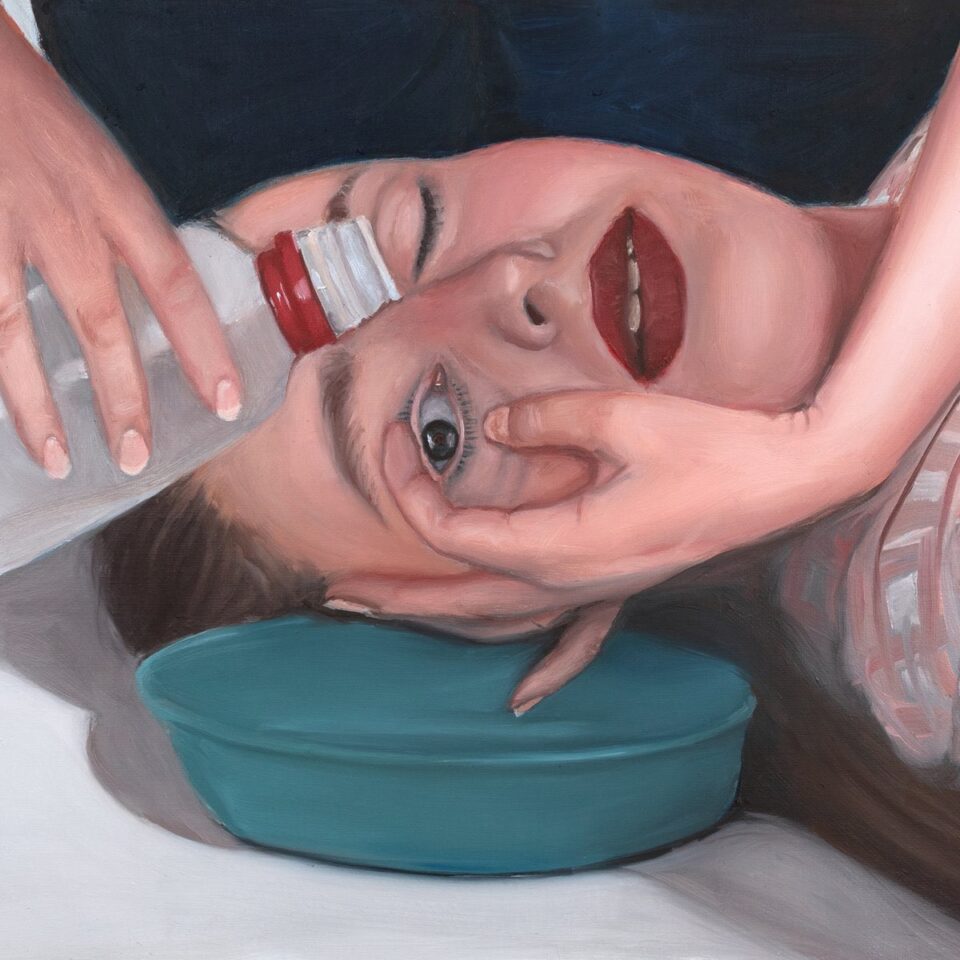Vampire Weekend
Only God Was Above Us
COLUMBIA
Ezra Koenig sounds shaken on Vampire Weekend’s fifth album Only God Was Above Us, like someone pulling up their jacket hood and braving an approaching storm. Koenig’s anxious lyrics, the band’s growling guitars, and the overall bricolage production make for a strange first couple of listens. There are murmurings of misunderstood relationship cues (“Connect”), intergenerational conflicts on a worldwide stage (“Gen-X Cops”), and the yearning hopes and bitter defeats associated with political conspiracies (“Hope”). All 10 tracks roll out like a middle-aged plot twist after 2013’s Modern Vampires of the City and are several hops away from the rangy and more fun rock genre experiments found on 2019’s Father of the Bride.
Whereas 2010’s Contra felt very similar to the band’s meteoric self-titled 2008 debut, this new full-length takes some wild stabs at evolving the group’s aesthetic further while still bringing back the sounds (and band members) from their 2010s era. Koenig reunited with bandmates Chris Baio and Chris Tomson, who toured with VW in support of Father of the Bride, but who didn’t record with the rest of the group. Multi-instrumentalist Rostam, who parted ways with the band after Modern Vampires of the City, also returns to help on the production side, as he did on Father of the Bride. Overall, the album has its fair share of head-scratching choices scattered throughout, but it’s at least concise. It’s also a direct hit to what Vampire Weekend fans have come to expect from Koenig and crew since their initial blog-era ascent.
The early single “Capricorn” delivers a poignant rumination on time passing through the eyes of an introspective father, and “Pravda” is probably the most experimental the band has gotten with its wash of electronic noise that’s propelled by a clarion-call lead guitar (a similar lead guitar line holds down the prowling “Prep-School Gangsters”). Openers “Ice Cream Piano” and “Classical” are both reminiscent of the early days with the full band kicking out some jams and operating in the pocket where lo-fi meets hi-fi as orchestral strings and a choir of voices rain down some destruction. “Classical” in particular gets downright jammy with its sax and piano interchanges, though both are among the more energetic songs on a sometimes cloaked record.
A clean example of this mature angle working is “Mary Boone,” which is named after the influential 1980s New York gallery owner. The soaring track includes a sample of Soul II Soul’s 1989 single “Back to Life (However Do You Want Me),” yet avoids being too overstuffed by maintaining a sense of pull and release, contrasting with some downright rackety tracks on the album such as “The Surfer” and “Hope.” Middle age comes with its fair share of baggage, and Vampire Weekend keeps most of the excess at bay on Only God Was Above Us.







